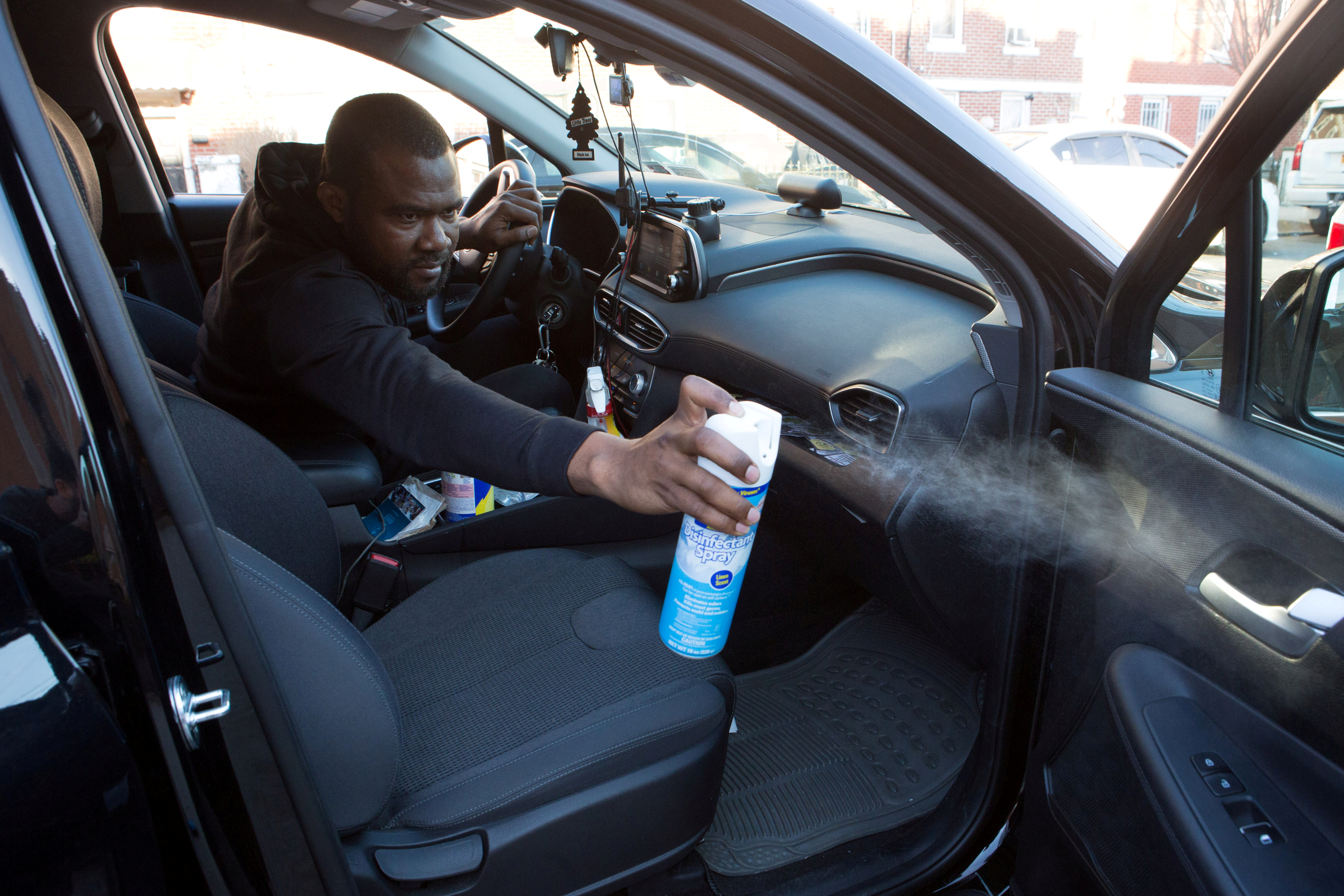By Tina Bellon and Nivedita Balu
(Reuters) - As independent contractors, U.S. ride-hail drivers for Uber (NYSE:UBER) and Lyft (NASDAQ:LYFT) benefited from soaring trip demand and flexible work hours.
But as the coronavirus brings large parts of the country to a halt, drivers and companies are facing the downside of an ambiguous contractor model. Many Uber and Lyft drivers depend on the companies, but under U.S. labor law they do not have the protections granted to regular employees.
Under pressure to ease the plight of its roughly 1.3 million U.S. drivers and food delivery workers, Uber has seized on the crisis to advance its campaign for a larger overhaul of U.S. employment law to permit it to offer more benefits while maintaining workers' contractor status, changes it has requested from state and federal lawmakers for several years.
Uber Chief Executive Officer Dara Khosrowshahi on Monday urged U.S. legislators to use the current crisis as an opportunity to implement changes to existing employment law by creating what the company calls a "third way" between employment and contractor status.
A massive federal aid bill agreed upon on Wednesday includes temporary unemployment benefits for self-employed and gig workers during the coronavirus crisis.
But Uber's proposal to change employment laws drew sharp criticism from labor unions.
"A 'third way' is just a euphemism for creating a new underclass of workers with fewer rights and protections," said Art Pulaski, executive secretary-treasurer of the California Labor Federation.
In a statement, Uber said economic forecasts meant more people will need flexible, independent work in the future, which was why it wanted to raise the standard for that work.
Uber's original benefits plan did not include unemployment insurance, the protection drivers seek most. A driver advocacy group in New York on Tuesday called on Uber and Lyft to contribute to emergency unemployment pay.
Uber did not comment on the lack of unemployment insurance, saying only that its proposed model included "extended benefits for independent contractors."
Lyft in a statement said the vast majority of its workers drive fewer than 10 hours per week and 80% have full or part-time jobs offering some level of benefits. Lyft said it was fighting for drivers to receive aid in the federal stimulus package, but did not comment on Uber's push for legal changes.
VULNERABLE GIG WORKERS
Demand for ride-hailing trips in recent weeks has declined by as much as 70% in some U.S. cities and many drivers told Reuters they stopped driving over fears of getting exposed to the virus or infecting others.
Makela Edwards, an Uber driver from Oakland, California, enjoyed the steady pay and flexible hours driving afforded after leaving her job as a public school teacher at the end of 2018. Now, demand for Uber rides has all but dried up.
"This coronavirus has really lifted the lid about how vulnerable I am and how we as gig workers are being left out of the discussion," Edwards said.
Some drivers said they planned to apply for unemployment benefits regardless of their contractor status, hoping for more flexibility under the current circumstances.
Others said they have switched to food delivery as a more reliable source of income with roughly a third of the U.S. population ordered to stay home. Uber on Wednesday said the number of people signing up to deliver food in the United States and Canada doubled last week from the week prior but did not provide additional details.
Uber and rival Lyft have established funds to compensate drivers and delivery people diagnosed with COVID-19 or placed in quarantine by health officials for up to 14 days.
Uber said payments have started to go out, but declined to share additional details. Lyft also declined to share numbers on the payment status of those funds.
The companies have also said they would distribute hand sanitizers. But both have closed their local hubs, places where drivers can go to receive in-person help or use the bathroom, and drivers do not know where to receive disinfectants.
Uber in a statement said suppliers had prioritized orders for healthcare workers, with its orders being moved down the queue several times. The company said it would communicate a distribution plan in light of the hub closures, but did not provide additional details. Lyft said it had distributed many supplies to drivers while its hubs were still open and was working a way to distribute them now, declining to provide additional details.
Most workers' benefits, including health insurance and workers' compensation, are attached to an employment relationship, said Pauline Kim, an employment law professor at Washington University in St. Louis.

Providing contractors with added benefits such as unemployment insurance requires a change or the passage of a new law, Kim said, adding that the current crisis highlighted the gap in protection between gig workers and regular employees.